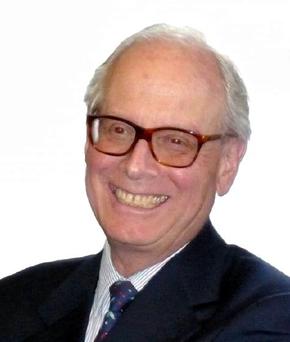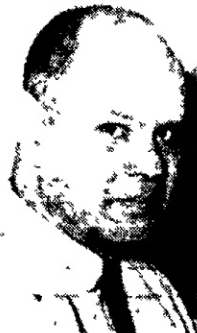Related Research Articles

Philately is the study of postage stamps and postal history. It also refers to the collection and appreciation of stamps and other philatelic products. While closely associated with stamp collecting and the study of postage, it is possible to be a philatelist without owning any stamps. For instance, the stamps being studied may be very rare or reside only in museums.

Indian postal systems for efficient military and governmental communications had developed long before the arrival of Europeans. When the Portuguese, Dutch, French, Danish and British conquered the Marathas who had already defeated the Mughals, their postal systems existed alongside those of many somewhat independent states. The British East India Company gradually annexed the other powers on the sub-continent and brought into existence a British administrative system over most of modern-day India, with a need to establish and maintain both official and commercial mail systems.
The Penny Post is any one of several postal systems in which normal letters could be sent for one penny. Five such schemes existed in the United Kingdom while the United States initiated at least three such simple fixed rate postal arrangements.
Ascension Island is an island in the South Atlantic Ocean, part of the wider British overseas territory of Saint Helena, Ascension and Tristan da Cunha. Like other British Overseas Territories, it issues its own postage stamps, which provide a source of income for the island from sales to overseas collectors, as well as being used for domestic and international postage.

John Harry Robson Lowe was an English professional philatelist, stamp dealer and stamp auctioneer.
Percival Stuart Bryce Rossiter was a renowned British philatelist and postal historian who wrote extensively about British postal history and postage stamps of British colonies in Africa and was involved in numerous philatelic institutions. In his Will he created The Stuart Rossiter Trust which has become a leading publisher of books on postal history.

Edward Wilfrid Baxby (Ted) Proud was a British postal historian, philatelic writer, and philatelic dealer who signed the Roll of Distinguished Philatelists in 2008.

This is a survey of the postage stamps and postal history of Ghana, known as the Gold Coast before independence.

This is a survey of the postage stamps and postal history of Saint Helena.

This is a survey of the postage stamps and postal history of Sierra Leone.

The Tapling Collection of postage stamps was donated to the British Museum from the estate of Thomas Tapling in 1891.

The Mosely Collection of British Africa stamps dating to 1935 was formed by Dr Edward Mosely of Johannesburg, South Africa. The collection was donated to the British Museum by his daughter, Kathleen Cunningham, in 1946 and is now held as part of the British Library Philatelic Collections. After the Tapling Collection, this is considered the Library's most important philatelic acquisition due to the number of countries represented and the number of unique items included.
The Universal Postal Union Collection is a deposit by the General Post Office (GPO) in the United Kingdom, under section 4 of the Public Records Act, of its duplicate Universal Postal Union collection of 93,448 stamps, covering the period from 1908.
The West Africa Study Circle (WASC) is the "international specialist society for the study of stamps, postal stationery and postal history of West Africa."

Simon John Sacher, CBE was a British retailer who spent thirty years with Marks & Spencer, including 25 years as a director. He was the last descendant of the co-founder of the company, Michael Marks, to serve in an executive capacity on the board of the firm. He was a former president of the Royal Philatelic Society London, member of the Council of the Royal College of Music, a governor of the Hebrew University of Jerusalem, one of its vice-presidents, and vice-president of the Industry and Parliament Trust. He was chairman of the Westminster Forum, and founder of the Whitehall and Industry Group.
The Gambia Senior Secondary School is a school in Box Bar Road, Banjul, Gambia, founded by Wesleyan missionaries. It has educated two leaders of Gambia.

Michael Moses Sacher FRPSL was an executive with British retailers Marks & Spencer including holding the positions of joint managing director and joint vice-chairman. He was closely associated with Jewish causes throughout his life and in his spare time was a noted postal historian of Palestine and a fellow of the Royal Philatelic Society London.
Ezekiel Victor Toeg FRPSL was a British solicitor and philatelist who specialised in the postage stamps and postal history of the British West Indies (BWI) and Caribbean. His collection of Antigua won two gold medals at international stamp exhibitions and included a 1693 letter to London that was described in 1990 as the earliest known letter from the island. He wrote a book on the adhesive fees stamps of the Leeward Islands (1991) and completed a survey of the stamps and postal history of the island of Dominica to 1935 (1994). He was president of the British West Indies Study Circle (BWISC) from 1968 until his death in 2010.
Philip Thomas Saunders FRPSL was a British banker and philatelist. He started in banking before the First World War but his career was interrupted by service in the Royal Flying Corps during the conflict. Returning to banking after the war, he published a history of Stuckey's Bank in 1928, working for banks that ultimately became today's National Westminster, before retiring in 1959.

Everard Francis Aguilar was a Jamaican horticulturist, stamp dealer, and philatelist.
References
- 1 2 3 Cover notes, Beale, P. (1998) A History of the Post in England from the Romans to the Stuarts. Aldershot: Ashgate, 1998. ISBN 1859284043
- 1 2 "Stone circles in The Gambia, West Africa". by Philip Beale, Magdalene Matters, No. 38 (Nov. 2013), pp. 10-11.
- ↑ Manuscript Contents Beale, Philip Ormrod "collection" (MS 465). Royal Anthropological Institute. Retrieved 17 September 2017.
- ↑ "Transition and Continuity of Identity in East Africa and Beyond: In Memoriam David Miller", Reviews, Christopher Fyfe, The Journal of African History , Volume 31, Issue 2, p. 338.
- ↑ Review: The Corsini Letters, James L. Grimwood-Taylor, The London Philatelist , Vol. 120, No. 1388 (September 2011), pp. 297-8.